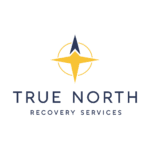Eating disorders and substance abuse are complex conditions that often coexist, presenting significant challenges for individuals and healthcare providers alike. Understanding the intricate relationship between these disorders is crucial for effective treatment and recovery. This comprehensive guide delves into the dual diagnosis of eating disorders and substance abuse in both men and women, exploring their interconnection, shared risk factors, and the importance of integrated treatment approaches.
Understanding Eating Disorders
Eating disorders are serious mental health conditions characterized by unhealthy eating habits and preoccupations with food, body weight, and shape. They can lead to severe physical and psychological consequences. The most common eating disorders include:
- Anorexia Nervosa: This is marked by extreme food restriction, an intense fear of gaining weight, and a distorted body image.
- Bulimia Nervosa: Involves cycles of binge eating followed by compensatory behaviors such as vomiting, excessive exercise, or laxative use.
- Binge Eating Disorder (BED): Characterized by recurrent episodes of eating large quantities of food, often rapidly and to the point of discomfort, without subsequent purging behaviors.
These disorders can affect individuals of any gender, age, or background, though they are often associated with young women.
Understanding Substance Abuse
Substance abuse refers to the harmful or hazardous use of psychoactive substances, including alcohol and illicit drugs. It can lead to dependence, health problems, and social issues. Common substances involved in abuse include:
- Alcohol: Excessive consumption can lead to liver disease, cardiovascular problems, and neurological damage.
- Illicit Drugs: Substances such as cocaine, heroin, and methamphetamine can cause a range of health issues, including heart problems, infectious diseases, and mental health disorders.
- Prescription Medications: Misuse of medications like opioids, benzodiazepines, and stimulants can lead to addiction and other health complications.
Substance abuse affects individuals across all demographics and is often intertwined with other mental health disorders.
The Intersection of Eating Disorders and Substance Abuse
The coexistence of eating disorders and substance abuse, known as a dual diagnosis, is a significant concern in mental health care. Research indicates that up to 50% of individuals with eating disorders also engage in substance abuse, a rate five times higher than the general population.
Shared Risk Factors
Several factors contribute to the co-occurrence of eating disorders and substance abuse:
- Genetic Predisposition: Family history of mental health disorders can increase susceptibility to both conditions.
- Psychological Factors: Low self-esteem, depression, anxiety, and trauma are common underlying issues.
- Social and Environmental Influences: Cultural pressures, societal norms regarding body image, and exposure to substance use can play significant roles.
- Neurobiological Factors: Alterations in brain chemistry affecting reward and impulse control systems may predispose individuals to both disorders.
Gender Differences in Dual Diagnosis
While both men and women can experience dual diagnoses, there are notable differences:
- Women: More likely to develop eating disorders, often accompanied by substance abuse as a coping mechanism.
- Men: Substance abuse may precede the development of eating disorders, with a focus on muscle gain and performance enhancement.
Understanding these differences is essential for tailoring effective treatment strategies.
The Impact of Dual Diagnosis
The combination of eating disorders and substance abuse can lead to severe health complications:
- Physical Health: Nutritional deficiencies, cardiovascular issues, gastrointestinal problems, and increased risk of overdose.
- Mental Health: Heightened anxiety, depression, cognitive impairments, and increased risk of suicide.
- Social Consequences: Strained relationships, occupational difficulties, and legal issues.
The interplay between these disorders often creates a vicious cycle, where each condition exacerbates the other, complicating recovery efforts.
Integrated Treatment Approaches
Addressing both eating disorders and substance abuse simultaneously is crucial for effective recovery. Integrated treatment approaches include:
- Comprehensive Assessment: Evaluating the extent of both disorders to develop a personalized treatment plan.
- Therapeutic Interventions: Cognitive-behavioral therapy (CBT), dialectical behavior therapy (DBT), and other evidence-based therapies targeting both conditions.
- Medical Management: Monitoring and treating physical health complications arising from both disorders.
- Nutritional Rehabilitation: Restoring healthy eating patterns and addressing nutritional deficiencies.
- Relapse Prevention: Developing coping strategies to manage triggers and prevent recurrence.
Collaboration among healthcare providers, including mental health professionals, dietitians, and medical doctors, is essential for successful treatment outcomes.
True North Recovery Services: A Comprehensive Approach
True North Recovery Services offers specialized addiction and mental health treatment programs designed to address the complexities of dual diagnoses. Their integrated approach includes:
- Individualized Treatment Plans: Tailored to meet the unique needs of each client, considering the interplay between eating disorders and substance abuse.
- Multidisciplinary Team: Comprising experienced professionals in addiction medicine, psychiatry, psychology, and nutrition.
- Evidence-Based Therapies: Utilizing proven therapeutic modalities to address both disorders concurrently.
- Supportive Environment: Providing a safe and nurturing space conducive to healing and recovery.
By focusing on the whole person, True North Recovery Services aims to empower individuals to achieve lasting recovery and improved quality of life.
The dual diagnosis of eating disorders and substance abuse presents significant challenges but is manageable with comprehensive, integrated treatment approaches. Understanding the interconnectedness of these disorders and addressing them concurrently is essential for effective recovery. With the right support and treatment, individuals can overcome these challenges and lead fulfilling lives.


